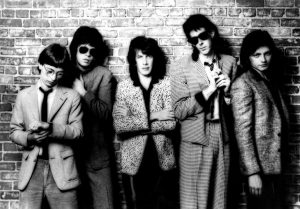Kansas: Carrying On Through Five Decades of Progressive Rock Mastery

In the pantheon of classic rock bands, few have blended symphonic grandeur with heartland grit quite like Kansas. Formed in the early 1970s in Topeka, Kansas, the band has endured lineup shifts, cultural changes, and evolving music landscapes to remain a touring powerhouse to this day. With hits like “Carry On Wayward Son” and “Dust in the Wind” still resonating on radio waves and streaming playlists, Kansas continues to draw fans both young and old. As they embark on their latest tour, it seems like a good time to consider their origins, path to stardom, the status of founding members no longer in the lineup, and the vibrancy of their current live performances.
Humble Beginnings in Topeka
Kansas’s story begins not with a bang, but with a series of mergers and musical experiments in the American Midwest. The band’s roots trace back to the late 1960s, when local Topeka musicians from groups like the Reasons Why and White Clover began collaborating. Key figures included guitarist and keyboardist Kerry Livgren, who had been in Saratoga, and drummer Phil Ehart and bassist Dave Hope from White Clover. By 1970, an early incarnation – sometimes retroactively called Kansas I – emerged, but it soon dissolved as a result of lineup instability.
The definitive Kansas coalesced in 1973 when Ehart, Hope, Livgren, violinist and vocalist Robby Steinhardt, vocalist and keyboardist Steve Walsh, and guitarist Rich Williams reunited under the Kansas banner. This sextet honed a unique sound: progressive rock infused with classical elements, boogie rhythms, and Steinhardt’s soaring violin, setting them apart from contemporaries like Yes or Genesis. They caught the ear of music mogul Don Kirshner after submitting a demo tape, leading to a deal with his label.
Their self-titled debut album arrived in 1974, produced by Wally Gold. It featured intricate arrangements but leaned more towards heartland rock than pure prog. Albums like Song for America (1975) and Masque (1975) followed, building a dedicated cult following through relentless touring. Kansas played hundreds of shows, opening for acts like Queen and Aerosmith, grinding out a reputation as a live force. However, mainstream breakthrough eluded them initially, possibly because their complex compositions didn’t always fit neatly within Top 40 formats.
Breaking Through: Radio Airplay and Soaring Popularity
The turning point came with 1976’s Leftoverture, which catapulted Kansas into stardom. The album’s lead single, “Carry On Wayward Son,” became a radio staple, peaking at No. 11 on the Billboard Hot 100. Its infectious riff, harmonized vocals, and anthemic chorus hooked FM rock stations across the country. The track’s success was bolstered by its placement in films, TV shows, and even video games like Supernatural and Guitar Hero, ensuring longevity. Leftoverture reached No. 5 on the Billboard 200 and sold over five million copies, driven by airplay on AOR (Album-Oriented Rock) stations that favored deep cuts.
Hot on its heels, 1977’s Point of Know Return solidified their fame. The title track and especially “Dust in the Wind”—a poignant acoustic ballad penned by Livgren—dominated airwaves. “Dust” hit No. 6 on the Hot 100, its philosophical lyrics resonating amid late-’70s cultural introspection. The album peaked at No. 4, went quadruple platinum, and expanded Kansas’s audience globally. They sold out big arenas like Madison Square Garden and toured Europe for the first time in 1978, even earning UNICEF ambassadorship.
Radio was crucial: AOR formats on stations like WNEW in New York and KLOS in Los Angeles played full album sides, exposing listeners to Kansas’s epic suites. Hits like these bridged prog complexity with accessible hooks, appealing to both casual fans and music aficionados. By 1979’s Monolith, which went platinum, Kansas had sold millions worldwide, but internal tensions were building. The band’s popularity peaked in the late ’70s, with over 30 million albums sold to date.
The 1980s brought challenges. Audio-Visions (1980) was their last gold album with the original lineup, as Livgren’s Christian faith influenced lyrics, clashing with Walsh. Walsh departed in 1981, replaced by John Elefante for Vinyl Confessions (1982), which scored the Top 20 hit “Play the Game Tonight” and crossed into Christian radio. Drastic Measures (1983) shifted to pop-rock, with “Fight Fire with Fire” topping mainstream rock charts.
Livgren and Hope left in 1984 to form the Christian band AD, leading to a brief disbandment.
Lineup Evolution and Founding Members Today
Kansas reformed in 1985 with Ehart, Williams, Walsh, bassist Billy Greer, and guitarist Steve Morse (later of Deep Purple). Albums like Power (1986) yielded the Top 20 ballad “All I Wanted,” but commercial peaks waned. The ’90s saw violinist David Ragsdale join, Steinhardt return briefly, and orchestral collaborations like Always Never the Same (1998). Somewhere to Elsewhere reunited original members plus Greer in 2000.
Steinhardt left for good in 2006 and passed away in 2021 from pancreatitis complications. Walsh retired in 2014 due to vocal strain, replaced by Ronnie Platt. Keyboardist David Manion came and went, with Tom Brislin joining in 2018. Guitarist Zak Rizvi (2016-2021, rejoined 2024) contributed to The Prelude Implicit (2016) and The Absence of Presence (2020). Violinist Joe Deninzon replaced Ragsdale in 2023. Greer retired in 2024, succeeded by Dan McGowan. In 2025, guitarist Scott Bernard became full-time, and Williams began scaling back touring due to age.
Among founding members not in the current lineup:
Kerry Livgren: The primary songwriter behind classics like “Dust in the Wind,” Livgren converted to Christianity in the ’80s and focused on solo work and AD. He occasionally guested with Kansas, including in 2013 and 2024, but lives a quieter life in Topeka, managing health issues like a 2009 stroke.
Dave Hope: The bassist became a pastor after leaving in 1984, founding a church in Florida. He made guest appearances, such as in 2013, but remains retired from music, focusing on ministry.
Robby Steinhardt: The violinist’s distinctive sound defined early Kansas. After multiple stints, he pursued solo projects until his death in 2021 at age 71.
Steve Walsh: The powerhouse vocalist retired in 2014 after vocal cord surgery. He released solo albums post-retirement but has stayed out of the spotlight, dealing with health challenges.
Phil Ehart, a founding member, stepped back from touring in 2024 after a heart attack, with Eric Holmquist filling in. These transitions reflect the band’s resilience, honoring their legacy while adapting.
The Current Tour: Still Carrying On Strong
In 2025, Kansas is on the road with the “Kansas & .38 Special Team Up for Summer 2025 Tour,” an extension of their “Another Fork in the Road – 50th Anniversary Tour” that began in 2023. The tour features co-headlining sets with .38 Special, delivering over four hours of classic rock. Recent dates include August 29 at Spirit Lake Casino in North Dakota (with Jefferson Starship), September 4 at Golden State Theatre in Monterey, California, and September 5 at Gallo Center in Modesto. More fall dates were added amid lineup tweaks, like Bernard’s addition.
Reviews have been glowing. Fans praise the band’s energy and musicianship, with sets spanning 40 songs, including deep cuts like “Child of Innocence.” A June 2025 Huntsville show was hailed for blending classics with orchestral flair. Despite reschedules (e.g., June dates due to weather), audiences note the “unforgettable” non-stop performances, lasting 2.5 hours. Platt’s vocals and Deninzon’s violin evoke the originals, while Brislin’s keys add dynamism. Ticketmaster feedback highlights excellent sound and audience interaction.
Social media posts from fans and band members show enthusiasm: sold-out venues, post-show thanks, and Platt’s updates on the tour’s momentum. As Kansas approaches 2026, this tour proves their enduring appeal—proving that, indeed, the point of know return is a journey worth continuing.




